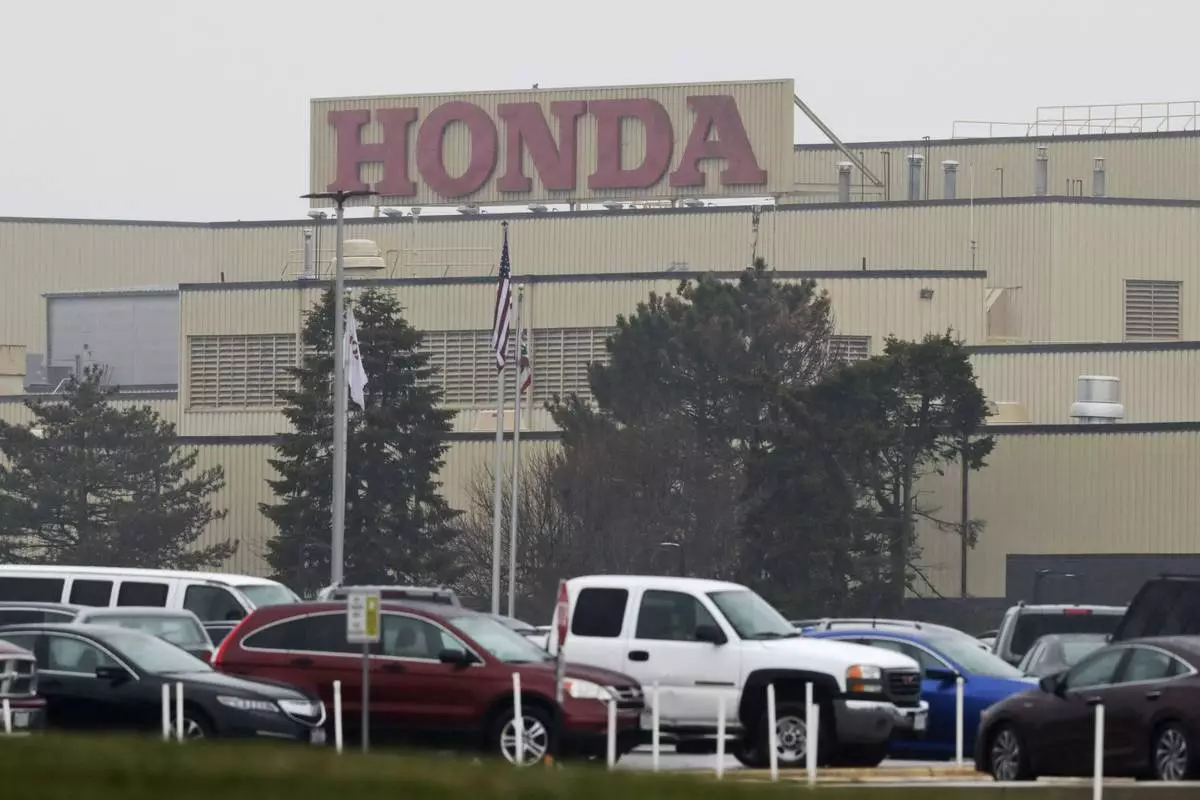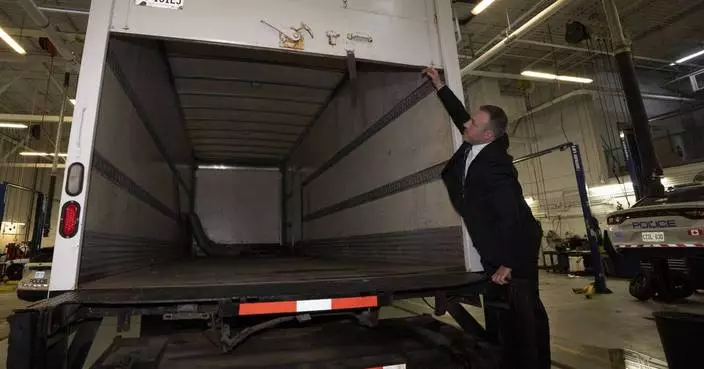Marijuana will be legal nationwide in Canada starting Oct. 17 in a move that should take market share away from organized crime and protect the country's youth, Prime Minister Justin Trudeau said Wednesday.
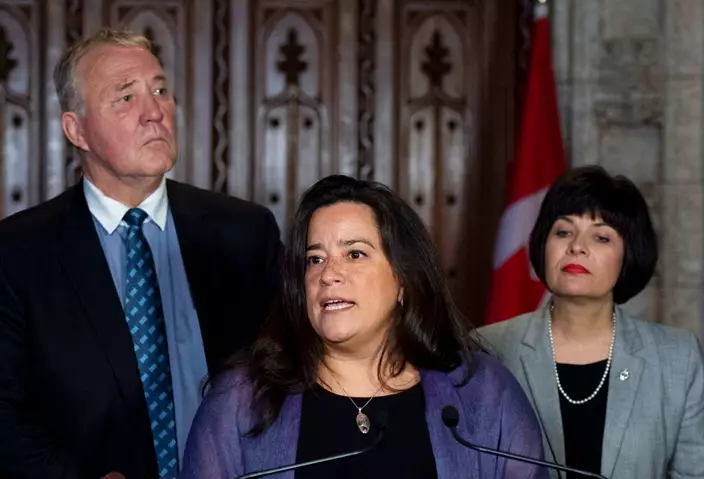
Minister of Justice and Attorney General of Canada Jody Wilson-Raybould speaks during a press conference as Minister of Health Ginette Petitpas Taylor, right, and Parliamentary Secretary to the Minister of Justice and Attorney General of Canada and to the Minister of Health Bill Blair, left, look on during a press conference on Bill C-45, the Cannabis Act, in the Foyer of the House of Commons on Parliament Hill in Ottawa, Ontario on Wednesday, June 20, 2018. (Justin Tang/The Canadian Press via AP)
The Senate gave final passage to the bill to legalize cannabis on Tuesday, legislation that will make Canada only the second country in the world to make pot legal across the country.
Trudeau said provincial and territorial governments need the time to prepare for retail sales.
"It is our hope as of October 17 there will be a smooth operation of retail cannabis outlets operated by the provinces with an online mail delivery system operated by the provinces that will ensure that this happens in an orderly fashion," Trudeau said.
The prime minister said at a news conference that the goal is to take a significant part of the market share away from organized crime.
"Over the following months and indeed years we will completely replace or almost completely replace the organized crime market on that," he said.
Canada is following the lead of Uruguay in allowing a nationwide, legal marijuana market, although each Canadian province is working up its own rules for pot sales. The federal government and the provinces also still need to publish regulations that will govern the cannabis trade.
"The legislation is transformative," said Justice Minister Jody Wilson-Raybould, adding it "marks a wholesale shift in how our country approaches cannabis, leaving behind a failed model of prohibition."
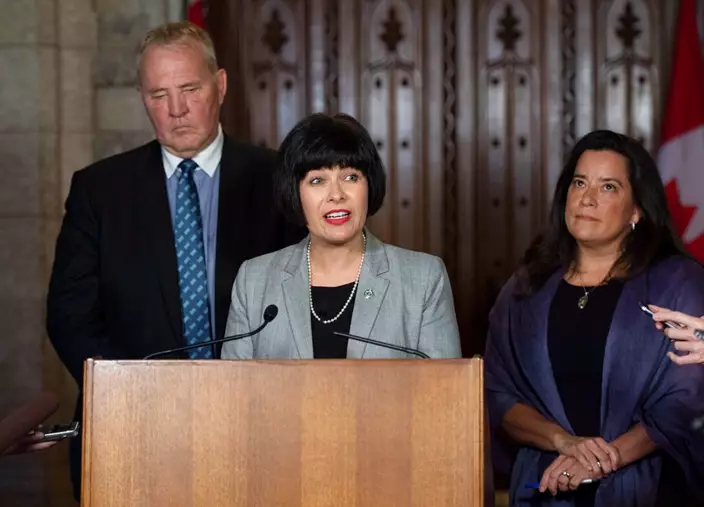
Minister of Health Ginette Petitpas Taylor, center, Minister of Justice and Attorney General of Canada Jody Wilson-Raybould, right, and Parliamentary Secretary to the Minister of Justice and Attorney General of Canada and to the Minister of Health Bill Blair, left, speak to reporters during a press conference on Bill C-45, the Cannabis Act, in the Foyer of the House of Commons on Parliament Hill in Ottawa, Ontario on Wednesday, June 20, 2018. (Justin Tang/The Canadian Press via AP)
She urged Canadians to follow the existing law until the Cannabis Act comes into force.
"The law still remains the law," Wilson-Raybould said.
Many questions remain unanswered, including how police will test motorists suspected of driving under the influence, what to do about those with prior marijuana convictions and just how the rules governing home cultivation will work.
The Canadian provinces of Quebec and Manitoba have already decided to ban home-grown pot, even though the federal bill specifies that individuals can grow up to four plants per dwelling.
"Provinces can set their own laws. If individuals are challenging that law, they can challenge it," Wilson-Raybould said.
Trudeau said the government won't discuss pardons of past convictions until legalization is in effect.
"There's no point looking at pardons while the old law is in the books," Trudeau said.
Trudeau said they are going to treat it like wine and tobacco, noting that few people will cultivate it at home, but it's necessary to fight organized crime.
Trudeau promised to legalize it during the 2015 election and had set a goal of July 1 for it. The provinces pleaded for more time.
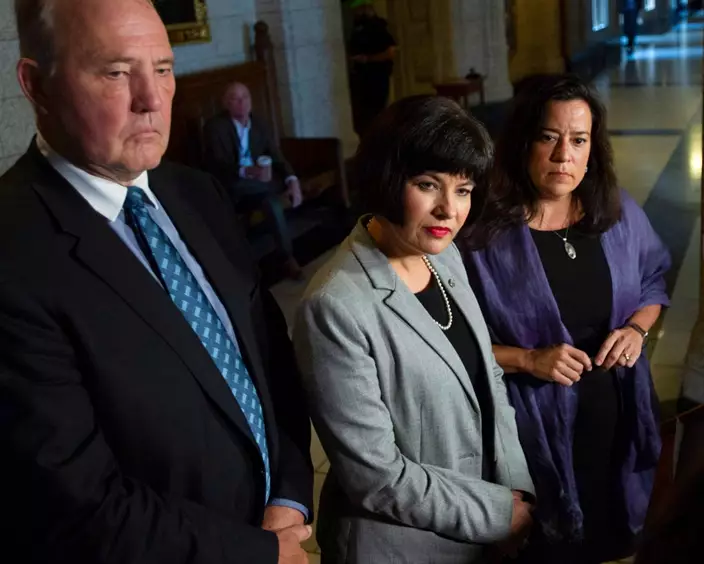
Minister of Justice and Attorney General of Canada Jody Wilson-Raybould, right, Minister of Health Ginette Petitpas Taylor, center, and Parliamentary Secretary to the Minister of Justice and Attorney General of Canada and to the Minister of Health Bill Blair, left, listen to questions during a press conference on Bill C-45, the Cannabis Act, in the Foyer of the House of Commons on Parliament Hill in Ottawa, Ontario on Wednesday, June 20, 2018. (Justin Tang/The Canadian Press via AP)
Canadian marijuana stocks have rallied in anticipation of legalization and jumped again on Wednesday.
In the neighboring U.S., nine states and the District of Columbia have legalized marijuana. California, home to one in eight Americans, launched the United States' biggest legal marijuana marketplace on Jan. 1.
The news was greeted with enthusiasm by marijuana advocates in the U.S.
Morgan Fox, a spokesman for the National Cannabis Industry Alliance in the U.S., said Canada's legalization should also serve as a wake-up call south of the border.
"The most important takeaway is that it's time for advocates in the industry to double down, so as to not be surpassed by the Canadian cannabis industry," he said.
Don Hartleben, who manages Dank of America, a retail cannabis store just south of the border in Blaine, Washington, said Canada's legalization was not only politically exciting, but a potential business boon for him.
Many of his customers are Canadian tourists who are terrified of trying to bring pot across the border, he said. If more use marijuana when they're in Canada, more will use when they're on vacation in the states.
"People ask me all the time, 'Isn't legalization in Canada going to hurt your business?'" he said. "I tell them, 'No! The more it's legal, the more people are going to feel safe to buy my product.'"



